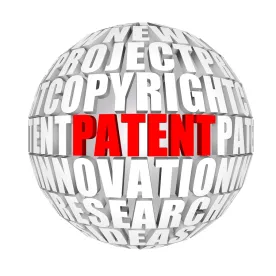Summary
On December 2, 2016, the Supreme Court of the United States granted cert in a key case regarding the scope of the patent exhaustion doctrine, or “first sale doctrine,” as it relates to (1) sales of a patented item subject to restrictions on post-sale use and (2) authorized sales of a patented article outside of the United States. The US Supreme Court’s resolution of this case will have important implications for secondary markets for patented products and global commerce.
In Depth
Overview
On December 2, 2016, the Supreme Court of the United States granted Impression Products, Inc.’s (Impression Products) petition for a writ of certiorari appealing a Federal Circuit en banc decision that held that Lexmark International, Inc. (Lexmark) did not exhaust its US patent rights when it sold its patented toner cartridges to customers: (1) in the United States, subject to a post-sale single-use/no-resale restriction, and (2) outside the United States.
The patent exhaustion doctrine, or “first sale doctrine,” holds that the initial authorized sale of a patented item terminates all patent rights to that item. However, the US Court of Appeals for the Federal Circuit has recognized two exceptions to the patent exhaustion doctrine. First, in Mallinckrodt, Inc. v. Medipart, Inc., the Federal Circuit held that a patentee may transfer title to the patented article and specify a post-sale reuse or resale restriction on the article that may be enforced by means of the patent laws. Second, in Jazz Photo Corp. v. International Trade Commission, the Federal Circuit held that a patentee’s US patent rights are not exhausted when it sells the patented article outside the United States.
The US Supreme Court’s resolution of this case will have significant implications for secondary markets for patented products and global commerce. Impression Products and several amici, including the United States, argue that if the Federal Circuit’s opinion stands, secondary markets for patented products will “grind to a halt” at substantial cost to consumers.
Background
Lexmark is a printer manufacturer that makes and sells patented toner cartridges for its printers to customers within and outside the United States. Lexmark offers toner cartridges to consumers subject to a patent license that has a single-use/no-resale requirement.
Impression Products is a remanufacturer of toner cartridges that acquires spent Lexmark toner cartridges sold in the United States and internationally, refurbishes them, and sells them for use with Lexmark printers in competition with new and refurbished cartridges sold by Lexmark.
In 2010, Lexmark brought suit against Impression Products and other remanufacturers for patent infringement. Lexmark contended that Impression Products infringed Lexmark’s patents because Impression Products contributed to the breach of the single-use/no-resale requirement of the purported patent license that arose from the sale of toner cartridges to consumers. Impression Products moved to dismiss Lexmark’s claims on the grounds that Lexmark exhausted its US patent rights in the cartridges by its initial sales of cartridges from Lexmark to distributors, who in turn resold to consumers. First, Impression Products argued that Lexmark’s single-use/no-resale requirement was an invalid post-sale restriction under the Supreme Court’s decision in Quanta which, Impression Products argued, implicitly overruled the Federal Circuit’s earlier decision in Mallinckrodt. Second, Impression Products argued that Lexmark exhausted its patent rights as to cartridges first sold abroad under the Supreme Court’s copyright exhaustion analysis in Kirtsaeng which, Impression Products argued, implicitly overruled the Federal Circuit’s decision in Jazz Photo.
The US District Court for the Southern District of Ohio held that the patent exhaustion doctrine barred Lexmark’s patent infringement claims against Impression Products regarding toner cartridges that were first sold by Lexmark in the United States, concluding that to the extent Mallinckrodt held that post-sale use restrictions precluded patent exhaustion after an authorized sale, it was overruled by Quanta. However, the district court also held that Lexmark did not exhaust its US patent rights in those cartridges that Lexmark initially sold abroad, concluding that Kirtsaeng, a copyright case, was not plainly inconsistent with Jazz Photo.
Both parties appealed. The Federal Circuit heard the case en banc and held that neither the domestic nor foreign sales had exhausted Lexmark’s patent rights in the toner cartridges. The court adhered to Mallinckrodt and Jazz Photo. After the Federal Circuit issued its opinion, Impression Products filed its petition for writ of certiorari with the US Supreme Court in March 2016.
Implications
As Impression Products and several amici, including the United States, argued in briefs filed with the US Supreme Court, the ultimate outcome of this case will have important practical consequences for secondary markets for patented products and global commerce.
If the US Supreme Court upholds the Federal Circuit’s position that “conditional sales” do not exhaust patent rights, then a patent holder may be able to limit or even eliminate the secondary market in its patented goods by including a post-sale restriction on use or resale in its sales contracts. For example, car manufacturers may be able to include post-sale restrictions on the use and resale of car components that could effectively outlaw their repair by any aftermarket competitors. In lieu of an outright ban on the use or resale of the patented article, a patentee might be able to “demand royalties for the use or resale of articles embodying its invention at multiple downstream points in the channels of commerce, long after the first authorized sale in the United States.” The district court cautioned that such a holding would “create significant uncertainty for downstream purchasers and end users who may continue to be liable for infringement even after an authorized sale to the consumer has occurred.”
If the US Supreme Court upholds the Federal Circuit’s position that an authorized sale of a US-patented item abroad does not exhaust patent rights, then companies seeking to import products into the United States may need “to track the provenance of every sub-component and sub-sub-component within its products” in order to avoid patent infringement assertions once the product is imported to the United States. As amici noted, this is particularly difficult in the global high technology industry where products are frequently covered by “thickets” of patents. Such a holding may also provide a patentee with the opportunity to twice extract royalties for its patent: the patentee may be able to sell its patented article for use in a component, and then sue for infringement once the finished product is imported to the United States.
For its part, Lexmark believes that such concerns are overstated. Regardless, given the potential implications of this case for secondary markets and global commerce, patentees and marketplace participants should closely follow the US Supreme Court’s resolution of this case. Resolution of this case will have significant implications on how patent holders either bring their products to market or license their rights to others. Also, companies that participate in markets where parts or consumable products are necessary to keep larger products or systems operational will need to assess their exposure to potential patent infringement assertions. This case will become the seminal decision on the application of the patent exhaustion doctrine under US law.




 />i
/>i
